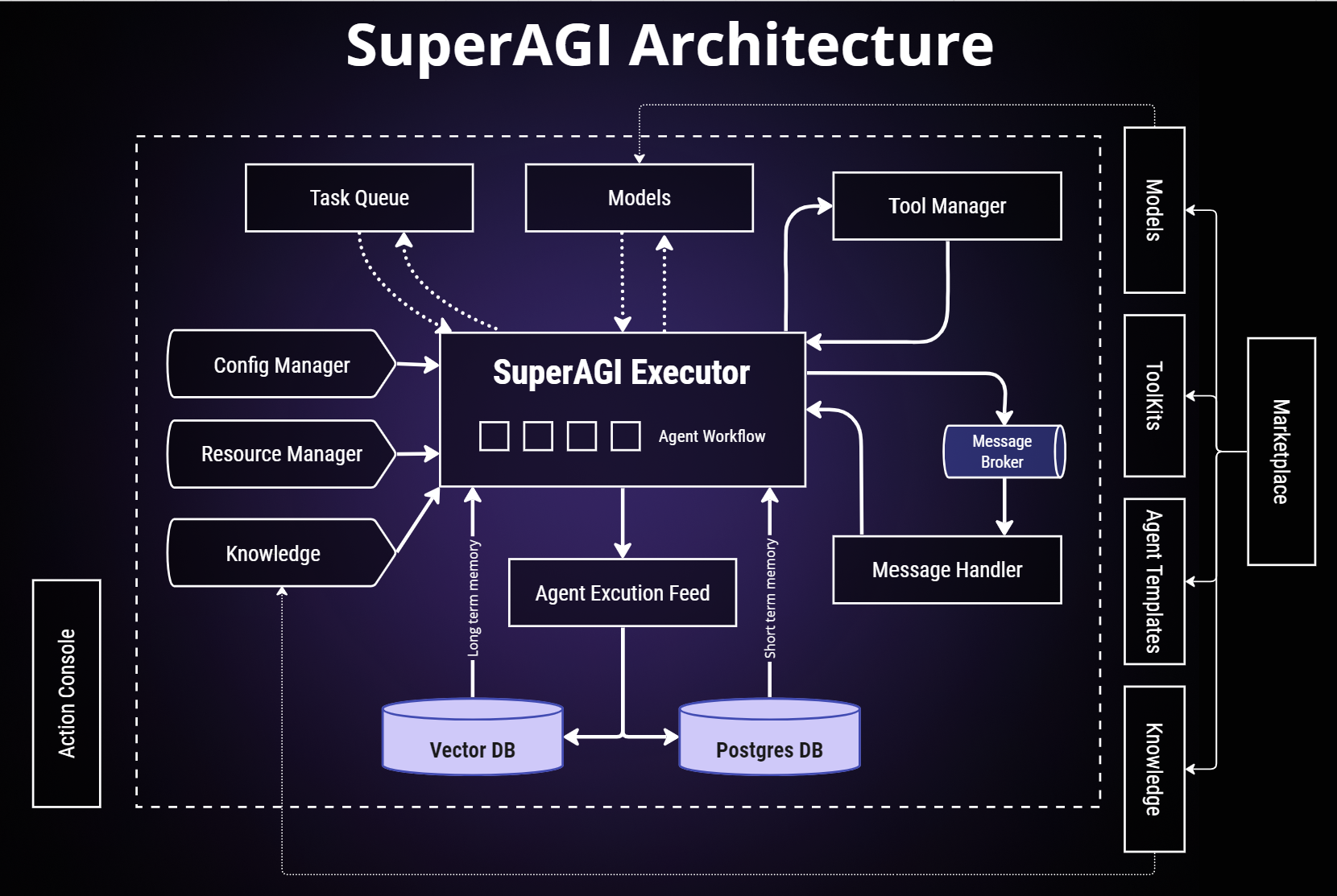Skip to content 

















Articles

想成为Agents开发者的你,绝对不能错过的直播回顾
在11月12日举办的MetaGPT游戏智能体高能分享会中,三个创新团队展示了如何利用MetaGPT框架推动游戏智能体的开发。狼人杀小组通过MetaGPT实现了精细的多智能体通信机制,MG-Minecraft小组展示了智能体的终身学习能力,在Minecraft中实现了快速的技术进步。MetaGPT虚拟小镇小组则展示了如何构建具有高度逼真行为的智能体。此外,圆桌讨论环节中,社区开发者深入探讨了GPT开发者与智能体开发者的不同,以及MetaGPT与其他项目框架的差异性。整个分享会不仅展现了技术的最新进展,还为智能体框架的未来发展提供了深刻的洞见。
GameAgent
DeepWisdomNov 16, 2023

MetaGPT虚拟小镇成立,进一步验证智能体社会的可行性
10月,由 MetaGPT 举办的 Mini-Hackathon 中,其中一个游戏复刻小组也基于 MetaGPT 框架,搭建了一座 MetaGPT虚拟小镇,通过构建具有高度逼真的行为,并使用记忆和经验模拟类似人类的思维的智能体。这些智能体不仅具备记忆和经验,还能执行复杂的计划和反思,从而实现类人观察、思考和记忆功能。
GameAgent
DeepWisdomNov 15, 2023

MetaGPT入选年度世界开源贡献榜:Open100(2022-2023)
MetaGPT及其背后的团队DeepWisdom在世界开源贡献领域获得了重要认可,成功入选2022-2023年度的Open100榜单。这一榜单由国际测试委员会BenchCouncil发布,旨在评估和表彰在开源领域有原创性、影响力和潜在重大影响的作品。MetaGPT在榜单中与AutoGPT、Baichuan2、LangChain、OpenHarmony和Stable Diffusion等开源项目并列。同时,DeepWisdom与OpenAI、百度、Anaconda Inc.、复旦大学等知名机构和公司一起入选。这次入选标志着MetaGPT在多智能体领域的工作得到了国际认可,也预示着它在实现Agent Society方面迈出了重要一步。
Insight
DeepWisdomNov 9, 2023

目标智能体社会,MetaGPT携手Jürgen Schmidhuber团队
过去数月,MetaGPT 的智能体(Agents)软件公司实例让人印象深刻,它迅速在 GitHub 获得了30k star,也获得了数十个全球专业媒体与大V报道。但智能体软件公司只是智能体社会(Agent Society)的一个缩影。智能体社会或许会有软件公司、电商公司、游戏公司,也会拥有大量的独立智能体提供生产力。现代人工智能之父 Jürgen Schmidhuber 也非常认可智能体社会的理念,他与其团队对MetaGPT做出了显著贡献,列入了 MetaGPT 作者名单。
Research
DeepWisdomNov 8, 2023

MetaGPT 实现多智能体通信,智能体也能轻松狼人杀
MetaGPT在Mini-Hackathon活动中展示了其在多智能体交互游戏狼人杀中的应用。在仅用3周的时间内,MetaGPT智能体成功模拟了狼人杀游戏中的复杂互动,如暗中合作、卖队友等策略。这一成果不仅展示了MetaGPT的强大功能,还为其在精细化沟通和策略游戏中的应用开辟了新路径。通过MetaGPT的多智能体通信和能力构建,智能体在游戏中的表现与真实玩家相媲美,显著提升了游戏体验的真实性和参与感。这一实验不仅验证了MetaGPT在复杂交互环境中的有效性,也预示了人工智能在策略游戏和沟通方面的新发展方向。
GameAgent
DeepWisdomNov 7, 2023

比VOYAGER快5倍?MetaGPT的Agents仅用16轮解锁钻石科技树
在MetaGPT举办的Mini-Hackathon中,MG-Minecraft小组成功应用MetaGPT在Minecraft游戏中,创造了智能体团队协助玩家在16轮任务内解锁钻石科技树的成就。这比标准的Voyager需要的近80轮任务显著减少。小组的实验数据显示,MetaGPT智能体在有限轮次内展现出卓越的技术掌握能力。
GameAgent
DeepWisdomNov 7, 2023

AI Workforce & MetaGPT for the Future of Work
The evolution of the workplace in the 21st century is punctuated by the relentless march of technological advancements, particularly the deepening footprint of artificial intelligence (AI). Within this vast domain, multi-agent systems and Large Language Models (LLMs) are redefining the paradigms of task execution, collaboration, and decision-making.
Insight
1001 epochsOct 19, 2023

Implementing Werewolf Game in MetaGPT
In their paper, "Exploring Large Language Models for Communication Games: An Empirical Study on Werewolf," Xu et al. explore the potential of large language models (LLM) in the popular game Werewolf, using MetaGPT as a multi-agent framework. Their challenge: Can MetaGPT recreate vibrant gameplay? Today, they share their exciting affirmative answer!
WerewolfGameAgent
DeepWisdomOct 10, 2023

MetaGPT Leverages Human Collaboration Techniques for Multi-Agent-Based Software Engineering
Created by a team of researchers from Chinese and US universities, MetaGPT is a new LLM-based meta programming framework aiming to enable collaboration in multi-agent systems by leveraging human procedural knowledge to enhance robustness, reduce errors, and engineer software solutions for complex tasks.
Insight
Sergio De SimoneAug 24, 2023

GitHub狂飙16.9k星,MetaGPT火爆全网!
MetaGPT,一个基于GPT-4的AI Agent项目,专注于软件开发。MetaGPT在GitHub上迅速受到关注,具有破解大语言模型中“幻觉”问题的潜力。它能扮演产品经理、架构师、项目经理和工程师等多角色,通过内部监督提高代码质量。MetaGPT通过结合人类工作流程和元编程方法,实现了复杂任务的高效协作。它还能根据一句话需求自动生成产品文档、架构设计等,相比传统手动开发,能更快完成任务并降低成本。不过,MetaGPT也有局限性,如不能处理复杂的多页应用或数据库。尽管如此,它仍被视为软件开发领域的一大进步。
Insight
51CTO技术栈Aug 12, 2023

GitHub 1.1万星,模拟软件开发流程,开源框架MetaGPT爆火
MetaGPT是一种创新的开源框架,它将大型语言模型与多智能体系统结合,用于处理复杂任务。通过模拟软件开发团队的工作流程和角色分配,MetaGPT克服了多智能体交互中常见的问题,展现了AI在项目管理和执行中的新前景。
Insight
机器之心Aug 7, 2023

MetaGPT爆火出圈!2美元就能当老板,GitHub狂揽11.2k星
MetaGPT,一个迅速在GitHub上获得超过11.2k星的AI多智能体框架。MetaGPT能扮演工程师、产品经理等多种角色,专注于软件开发领域的产品需求、设计和API开发。它通过简单的需求输入,自动输出整个软件开发流程和标准操作程序。文章还展示了使用MetaGPT开发小游戏Flappy Bird的示例,证明了其强大的功能性和实用性。同时,提供了MetaGPT的安装和使用指南。
Insight
新智元Aug 7, 2023

MetaGPT技术全解析:另一个AutoGPT,一个可以替代小型软件开发团队的LLM框架,产品经理、系统设计、代码实现一条龙
MetaGPT,一个基于GPT-4的AI Agent项目,专注于软件开发。该项目在GitHub上迅速受到关注,一个月内获得超过1万星。MetaGPT通过定义多种角色(如工程师、产品经理),自动从需求分析到代码实现的全流程。文章还展示了MetaGPT开发Flappy Bird游戏的实例,证明其实用性和效率。总体上,MetaGPT代表了AI在软件开发中的新应用方向。
Insight
DataLearnerAug 7, 2023

MetaGPT: a Multi-Agent Framework to Automate Your Software Company
MetaGPT是一个GitHub上受关注的多智能体框架,能以软件公司各角色(如工程师、产品经理)的形式工作。它通过简单的文本输入,自动生成软件开发流程的各个环节,如用户故事、API设计和需求分析等。MetaGPT的核心理念是将标准操作程序应用于由大型语言模型组成的团队,实现复杂任务的高效协作。
Insight
Peter XingAug 6, 2023

METAGPT: META PROGRAMMING FOR A MULTI-AGENT COLLABORATIVE FRAMEWORK
Remarkable progress has been made on automated problem solving through societies of agents based on large language models (LLMs). Existing LLM-based multi-agent systems can already solve simple dialogue tasks.
Research
DeepWisdomAug 1, 2023

GPT-4顶替老板&程序员,这个GitHub项目火上热搜第一,作者:要让AI学会自己迭代自己
让GPT-4运转一个软件公司,就能把项目成本砍到几美元?这个想法,还真有人在做了。就在这两天,一个名叫MetaGPT的项目在GitHub上爆火,一度冲上热榜第一,目前标星已有6.6k。这个项目的终极目标,正是让像GPT-4这样的大模型们自己组建一个软件公司,不仅能实现公司自动更新,就连公司里面的员工也全部换成大模型。
Insight
量子位Jul 29, 2023

框架速读:SuperAGI
框架速读:SuperAGI
Research
DeepWisdomJun 5, 2023

框架精读: langchain精读
在今年3月到5月,我陆续读完了市面上稍有热度的论文全文、框架代码,输出了总计53篇笔记,这些笔记在公司内是全员透明的,有长有短。大部分的论文对应代码只有5-10行,对应阅读笔记也往往很短;而LangChain这个库代码接近10万行,引起了我的兴趣。以我的第一感受,LLM中间层还没有这个量级的代码需求。在体验了LangChain的一些例子以后,我心里泛起了浓浓的疑惑 —— 真的有必要使用LangChain吗?
Research
DeepWisdomMay 8, 2023